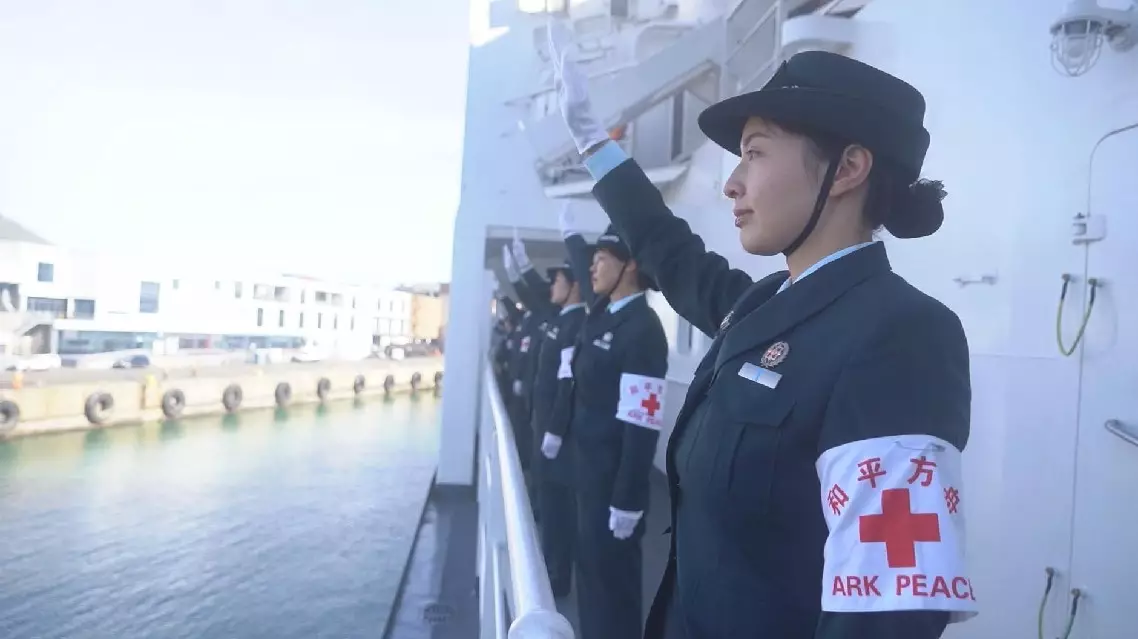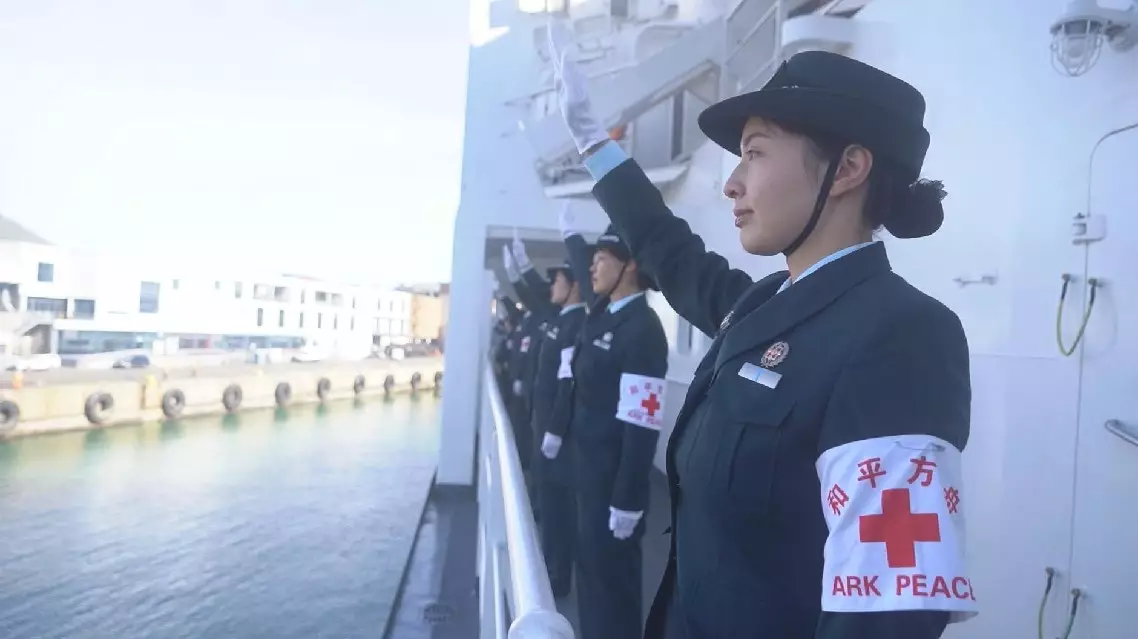The Chinese naval hospital ship Peace Ark on Mission Harmony 2024 arrived at the port of Cape Town of South Africa on Thursday for a seven-day goodwill visit during which the Chinese medics will provide medical services to the local community and hold exchange activities with the South African side.
This is the first time for the Peace Ark to visit South Africa, with the aim of increasing mutual understanding in multiple fields and deepening traditional friendship between China and South Africa.
At 10:00, representatives of the South African military, staff members of the Chinese Embassy and Consulates in South Africa, as well as locals, overseas Chinese, and employees in Chinese companies operating in the country gathered at the port to welcome the Peace Ark hospital ship.
During the visit, the mission commander will meet with South African military and government officials, and several South African government dignitaries will also board the ship to participate in exchange activities. Besides, representatives of the mission's personnel will visit local schools to engage in cultural exchanges and participate in friendly basketball and tug-of-war matches with members of the South African military.
"Chinese naval hospital ship Peace Ark will make a use of its main platform to provide medical services and dispatch expert teams to local hospitals for joint consultations and academic exchanges. It will also hold a special academic exchange event on traditional Chinese medicine in collaboration with South African University of the Western Cape. Through frequent and varied exchange activities, we hope to continuously increase shared understanding in multiple areas and deepen traditional friendship of the two countries," said Wang Xiaoxin, Chinese People's Liberation Army (PLA) Navy officer for the mission.
The "Peace Ark" set sail from a military port in Zhoushan in east China's Zhejiang Province for Mission Harmony-2024 in June.
During the mission, the ship has visited or will visit 13 countries and provided charity medical services to locals.
This is the 12th overseas mission, and the 10th Mission Harmony for "Peace Ark" since its commissioning in 2008.

Chinese navy hospital ship arrives in South Africa for goodwill visit

Chinese navy hospital ship arrives in South Africa for goodwill visit





















































